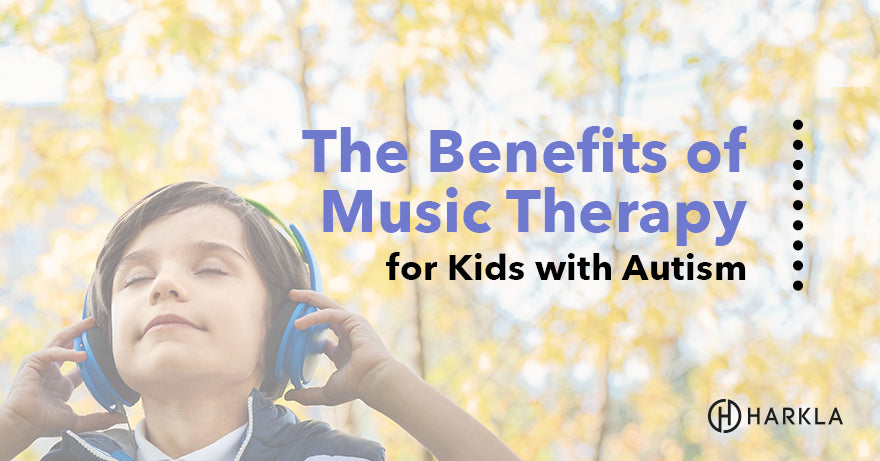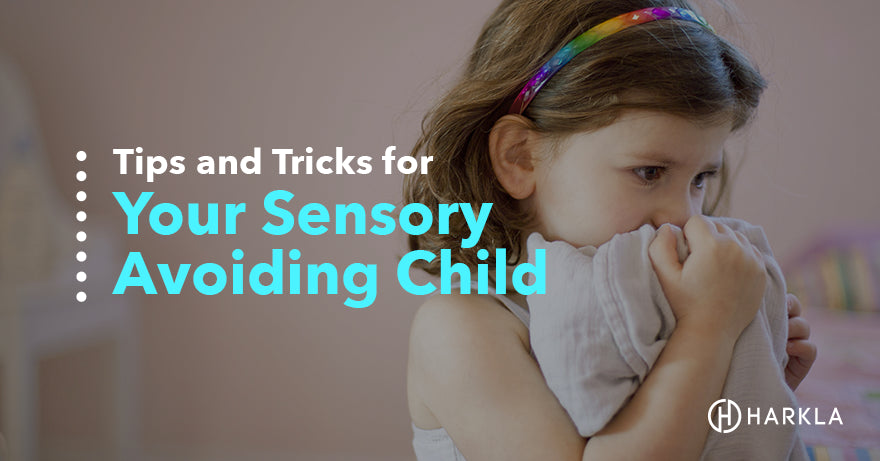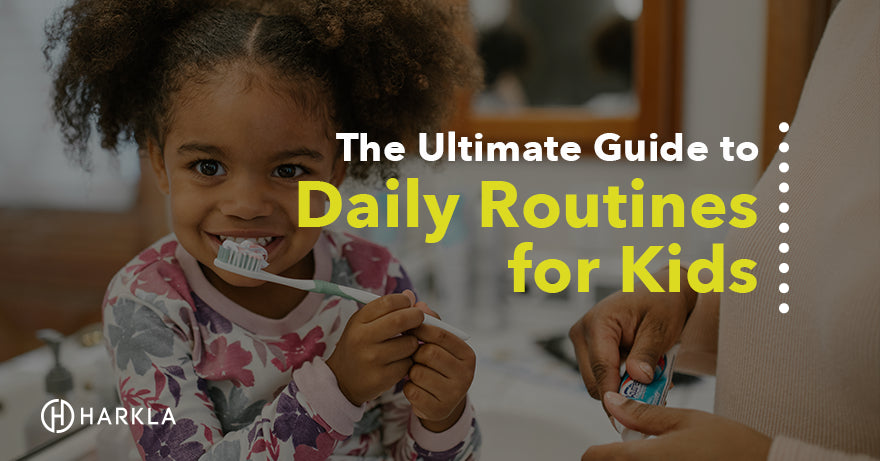Your Cart is Empty

Music has always had a therapeutic effect on people, and even more so for individuals diagnosed with autism, especially children. Its calming effects have been well established within the medical community, helping to ease their integration into society.

Music is often used as a supplement when they are learning verbal communication skills, as it provides an entirely different way for children with autism to express themselves.
Having another channel of communication can sometimes be vital to increasing the intimacy between parents and their children with autism. Also, kids on the autism spectrum are exceptionally responsive to musical stimuli, and it can be used to reinforce desired responses from them.
In this guide, you’ll see how music therapy works, why so many autistic kids respond strongly to it, and simple ideas you can try at home like calming music and classical playlists that help kids settle their bodies.
There has been a vast amount of research showing that music has many benefits for children with autism. While autistic individuals are slower to develop speech communication skills, they are able to understand music equally well, if not better than individuals who do not have autism.
While autism can affect an individual to different degrees, music therapy is consistently beneficial across the entire spectrum of autism.
To be specific, autistic children have an enhanced ability to recognize pitch, memorize tunes, and map emotions onto musical pieces. In some specific individuals, they have been able to master playing the piano fluently even before they can speak complete sentences.
Music has been shown in schools to improve responses in autistic children. Studies reveal that autistic kids respond much more frequently than usual during music lessons. Music not only motivates them to respond more often but also helps them to enjoy the process of expressing themselves.

If we look closer at how a musical band works, it can reveal exactly why music therapy can be beneficial to autistic children. A band involves different instruments working and coordinating with each other to produce a unified tune, yet only requires an individual player to focus on one instrument at first.
The gradual coordination between different instruments is not unlike how normal individuals coordinate their senses in their everyday lives. This is exactly what an autistic child finds hard to do, so learning through music can gradually help them understand and improve their cognitive coordination skills.
One of the common ways to include music in learning is for autistic kids to engage in musical improvisation, where a therapist demonstrates how to use an instrument, followed by allowing autistic kids to play the instruments in any way they like. As there is no such thing as a mistake in improvisation, therapists can continuously encourage and build their confidence in expressing themselves through a musical instrument.
Another way to use music in therapy is to let them memorize and repeat simple songs, which can be much easier for them to master than speech. Studies have also shown that simple classical tunes have the best effect in calming autistic kids, and eventually, through playing these in the background in their daily lives, they can improve their control on their own mood and temperament.
Music gives kids an alternative way to share ideas. A child may sing a phrase they can’t yet speak, or use rhythm to imitate back-and-forth conversation. Many parents say music becomes the bridge that helps their child find their voice.
Calming music for autistic children (especially slow, repetitive patterns or soft classical music) can lower stress and help kids settle during sensory overload. Music also gives kids something steady to focus on when too many other sounds feel overwhelming.
Music has a grounding effect. Therapists often use rhythm to help reduce anxiety, tension, or frustration. Some children respond so strongly that background music becomes part of their daily routine.
Tapping, shaking, strumming, or pressing keys gives kids a chance to build fine and gross motor coordination. Music is naturally multi-sensory, so it lets children practice listening, watching, and moving at the same time.
Making music together encourages turn-taking, waiting, matching another person’s rhythm, and shared engagement which strongly benefitssocial interaction. Passing instruments or finishing a musical phrase together often feels easier than standard social play.
Here are simple activities you can use without needing formal training:
Tap a pattern on a table, then pause.
Let your child copy the rhythm in any way they want.
This builds attention, imitation, and connection.
Play a short tune that sounds happy, calm, or sleepy.
Ask your child to show or pick how the music feels.
This helps with emotional awareness.
Offer one instrument at a time like a shaker, drum, xylophone, mini-keyboard.
Let your child play freely with no rules.
Improvisation boosts confidence and self-expression.
March to a steady beat.
Move scarves to slow or fast songs.
Follow “stop and go” cues to practice self-control.
Create a simple tune for brushing teeth, bedtime, or cleaning up.
Kids often respond faster to sung instructions than spoken ones.
These music therapy ideas for autism give you a flexible way to practice communication, transitions, and self-regulation at home.
Light classical pieces with slow tempos and repeating phrases are especially effective. Think:
Debussy: Clair de Lune
Bach: Prelude in C
Satie: Gymnopédie No. 1
Pachelbel: Canon in D
Here are some calming music options that many autistic children respond well to. Each type offers a different kind of sensory support, so you can try a few and see which ones help your child feel more grounded and relaxed.
|
Type of Music |
How It Helps |
Examples |
|
Ambient & Instrumental |
Soft piano, gentle strings, and simple synth pads reduce overstimulation and help the body settle. |
Light piano tracks, slow instrumental playlists |
|
Predictable, Repetitive Tunes |
Repetition gives kids a steady pattern to follow, which lowers anxiety and supports regulation. |
Loop-based melodies, simple repetitive songs |
|
Nature-Based Sounds |
Natural audio like rain or waves helps many kids relax and stay grounded. |
Rainfall, ocean waves, forest sounds |
Music is an engaging and enjoyable activity that can bring about positive behavioral changes over a long period of prolonged music therapy sessions. Just like most other forms of play learning, music therapy for autistic children can be engaging without being tedious. It is an extremely effective way for parents to reach out and communicate with their autistic kids, even when nothing else can. Most of all, music is fun!
Always bear in mind that consistency is key, and perseverance with any particular therapy, including musical therapy, is vital to yielding good results.
If your child has benefitted from music therapy, we’d love to hear from you!
Yes, many autistic kids relax more easily with slow, predictable classical pieces. Soft piano or string-based music can support transitions, bedtime, or calm-down breaks.
Absolutely. Simple activities like rhythm games, call-and-response tapping, or routine songs are easy ways to use music at home.
Shakers, small drums, keyboards, and xylophones are easy for kids to explore without frustration.
For many kids, singing or repeating musical patterns feels easier than speaking. Over time, this can support speech development and communication.
This is a guest post by Sage Music.
Curtis Dean writes on behalf of Sage Music School where they base lessons on the science and research of the psychology of learning. Their effective teaching methods create confident and capable students who enjoy the happiness of making music.
Social media links:
https://www.facebook.com/SageMusicCo
https://twitter.com/sagemusicco
https://in.linkedin.com/company/sage-music
definitely my child is found of listening to music.. He has a list of preferred songs.. likes to listen repeatedly…it has helped him lot.. listens carefully and calmly with full interest..
Hi I understand. Now what’s the next step what and where should I start
Glad you found the article useful, Mya!
The article was relly giving alot about music for autistic children.
thanks for the article.
Comments will be approved before showing up.



Mateo Mahani
October 11, 2022
It’s what I realized she’s so into music and it calms her and she concentrates a lot more to music than anything, this is so true about music